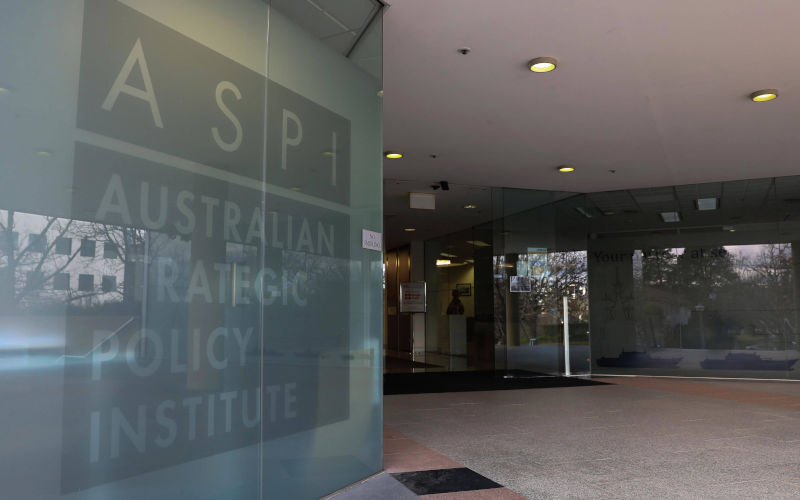The Varghese review of funding for strategic policy work: the triumph of the poverty of imagination
January 9, 2025
The Independent Review of Commonwealth funding for strategic policy work, conducted and authored by Peter Varghese is now published. It almost sparkles in places, but overall, it disappoints. Sadly, it delivers what was minimally anticipated.
To recall: A media statement of 5 February 2024 — at various levels innocuous, anodyne and ambiguous — advised that the Department of Prime Minister and Cabinet had launched an independent review of Commonwealth funding for national security strategic policy work.
The scope of the review would include all Commonwealth funding to non-government organisations — essentially, think tanks and the universities — to conduct national security-related research, education and engagement activities.
While these programs were held, on the one hand, to provide contestability, deepen public discussion, strengthen partnerships, and inform policy debates on national security matters, the review’s purpose was, on the other hand, to ensure that they remained appropriately aligned to Australia’s national interests and strategic circumstances.
A distinguished former public servant with extensive experience in foreign policy and national security, and current vice-chancellor of the University of Queensland, Peter Varghese, was selected to lead the review.
Reducing the terms of reference to what the government ultimately required, three “core outputs” were identified. One related to a “stocktake of relevant activities”, and another to recommendations to improve the delivery of the relevant activities.
Specifically and exclusively in the context of the universities, though, the third — “performance evaluation” — aroused considerable interest, the reason being that it highlighted the need to report on, inter alia, “accountability, probity and transparency”.
Specifically, it raised a disconcerting question: Why (especially in relation to probity)? Was this merely a pro forma inquiry, or were there suspicions in the government funding agencies that demand it be undertaken?
If that was the case, then the questions of research integrity in general, and the universities’ codes of academic/intellectual integrity were immediately in play.
Nine months ago, after surveying this scene more broadly, my anticipation was that, with the best of intentions, the eventual report would be less a Reformation document — one which concentrated on the need to correct the various malaises into which well-funded policy advice had fallen — and more in line with a weak Tridentine response – wherein certain infringements in the fiefdoms of advisers are admitted but none are judged to warrant its abolition. Rather, their clerical privilege is to continue after duly accepting new strictures and improvements in their behaviour.
The metaphor just used, from an episode in the history of religion, seems entirely appropriate: first, the institutional prerogatives resonate, and second, strategic doctrine and policy, unventilated by fundamental critique, or rendered insensitive to it, conforms to the worst aspects of religious belief in that, over time, it suffers from the insidious forces of entropy and becomes sclerotic.
Additional justification is provided by the analyses and reports I cited. So deeply embedded is the Pentagon in certain areas of Australian university research that it is clearly exhibiting characteristics of Americanisation and militarisation. To belabour the obvious, the Australian universities are selling indulgences; their ideal CEO is Johann Tetzel, and definitely not Alexander von Humboldt.
For all of that, the Independent Review produces some positive, indeed overdue, outcomes as regards, for example, reform of the egregious support for the AALD, and changes to the administration, funding, and governance of those in receipt of government financial support. Its focus on the Australian Strategic Policy Institute and the improvements it requires across the board from it are especially overdue and therefore just as welcome.
There are also some notable conclusions which, at the same time, raise more questions than answers. Consider just seven.
- Think tanks and universities are described as “an ecosystem,” or a “sector,” implying that they are seen as components in the broader policy directorate which includes the military, industry and government.
Yet they are also seen as weak, vulnerable, and require external sustenance, but not to the extent that their aggregate budget should be increased.
This is an entirely misleading caricature of the “sector:” the review process, exercising due diligence, would have known that there are numerous robust, empirically-based analyses of significant actors within it that reveal it is compromised and host to, in places, organisations deserving the description “rotten boroughs”.
The question then is not the level to which they are funded by government, but why they should even been considered worthy of funding in the first place.
- Similarly, the review states that the system is not broken and delivers many benefits. In policy terms, what are they? We are not told.
If the benefits cannot be listed, we are asked to take on trust that organisations which were regarded suspiciously enough by government itself to warrant Varghese’s inquiry, are, in fact, operating at some undefined level of satisfaction.
-
Is there evidence of “value for money”? If so, what is the methodology? That is, what is the methodology for establishing research output performance at a level which justifies funding in the amount of $40 million for all activities.
-
The benefit of contestability: what needs to be asked is: Who is contesting what? And is alleged benefit to be taken seriously?
Here it should be noted that the cancellation of the French submarine project came out of nowhere, and AUKUS came out of nowhere. There is a list of uncontested weapons purchases that preceded this.
More significantly still, Australia’s decisions to commit to numerous wars were made with total disregard for contestability. Are we now to believe that Government is about to undergo a Damascene Conversion?
In its most comprehensive form, contestability requires access to the same data, information and documents that the original decision-makers had. This requires security clearances and so forth – at the time! It would also appear to require contestability via institutions; if so, how is genuine “public understanding” realised under these conditions?
-
Equally, facilitating “different perspectives” because, as the Independent Review states, too often policy advice lacks “diverse views” cannot proceed unless the intellectual orientation of the ecosystem changes. And currently, given its politics and funding models surviving demands a form of social Darwinism which excludes the very perspectives that are recommended.
-
“Fact-based analysis” is to be the lingua franca. It has an immediate appeal, but is naive, perhaps extremely naive. The question is not about the imperative to be fact-based, but which facts are to be chosen as relevant. And how are the facts to be linked? Surely the claim is not that “the facts speak for themselves”?
-
In any case, the review undoes itself with the contradiction between requiring fact-based analyses on the one hand and ensuring that the public is persuaded by accounts of what the facts mean and so producing social licence on the other. Strategic policymaking is surely not an antiseptic process by which a catalogue of facts is presented, the return key is pressed and the policy is revealed on the screen?
But the recommendations covering these are a thin return in the light of the urgent issues which are not addressed.
The first of these is that the think tanks and the universities’ security and strategic studies areas are financially beholden to their sources of funding. The very notion that the funders are seeking unvarnished truth, and that the universities will provide it, is preposterous.
Government generally knows the truth, as do the other sources of funds. All too often they are united in their lack of need for it; what they need, rather, is how to circumnavigate it.
Moreover, the need to be sensitive to the patron is acute where the existence of programs and even whole centres is reliant upon the funding provided by foreign and domestic corporations whose interests require the production and maintenance of threat, weapons acquisition by governments and, ultimately, high levels of profit and thus regular and handsome returns on investment by shareholders.
To say the least, peace, rapprochement, disarmament, etc are impediments to this.
Second, and relatedly, I have searched in vain to find where the probity question is dealt with – an issue of extreme importance now that the Artificial Intelligence age is under way. I can find no mention of AI in the entire document.
Despite the various plagiarism detection programs, many of which can be defeated without undue difficulty, plagiarism is a fact of life within the universities and elsewhere – something Varghese, as vice-chancellor of a university, would surely be aware of. It appeared in one significant report to government as early as the late 1980s.
Thirdly, in such investigations as the Independent Review carried out, it is imperative that the think tanks and the universities (even in their currently neurotic and ruined state) be disaggregated.
The reason is straightforward. Universities, because of their structures, obligations, legacy ethos, and commitments are ill-suited to the closed-off world of policy advice. Notwithstanding their fall from grace, they are still capable of appointing scholars who would be passed over by think tanks.
This is not to dismiss think tanks. Ideally, according to the criteria referred to by Varghese in the review, they would make valuable contributions to strategic policymaking. For now, however, there is another reality.
They tend to attract conservative, even hawkish thinkers, and where China and Russia are concerned, the evidence is that they attract radically conservative and particularly hawkish thinkers. For the present, they arrive at conclusions through processes that university scholars would find anathema.
The Independent Review speaks of reform of the think tanks and the relevant university areas engaged in strategic policy work. It’s tempting to say that its approach is conservative, but that is misleading. Its approach to the ecosystem which is its focus is more accurately described as inverse-eleemosynary. It is, at its core, an act of charity – the provision of help given to organisations which, on the available evidence, deserve none of it.

